Man at the heart of Italy’s darkest mysteries dies at 96 after being convicted several times for conspiracy and tax fraud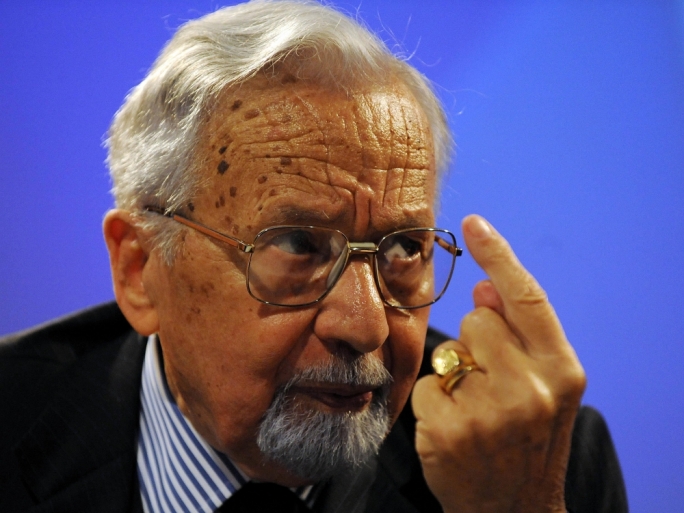
The venerable master of the clandestine freemasons lodge Propaganda P2, one of Italy’s most sinister organisations believed to be at the heart of a fascist conspiracy, has died.
Licio Gelli (born 1919) died on Tuesday, 15 December, at the age of 96 at his house, Villa Wanda, in Arezzo.
La Repubblica dubbed the financier, as the man behind “all of Italy’s darkest mysteries”: in 1981, his P2 lodge was raided by the police, and since then he has been nicknamed ‘the puppetteer’, ‘Belfagor’, and ‘the venerable master’, having played a part in 40 years of scandals against the Italian republic: the Borghese coup, the strategy of tension that rocked Italy in the 1970s, the Sindona bank scandal, the Calvi murder, the Moro assassination, mafia and tangentopoli.
In 2008 he famously declared that Silvio Berlusconi, himself a former member of the P2, was “the only one who could go ahead in politics in Italy” citing him as the man who was putting in action P2’s ‘plan for Italy’s democratic rebirth’ – a clandestine plan to take over the country’s institutions and thwart critical and left-wing opposition.
During the 1930s, Gelli volunteered for the Blackshirts’ expeditionary forces sent by Benito Mussolini in support of Francisco Franco’s rebellion in the Spanish Civil War and subsequently became a liaison officer between the Italian government and Nazi Germany, with contacts including Hermann Göring.
He participated in the Italian Social Republic with Giorgio Almirante, founder of the neofascist Italian Social Movement (MSI) – which later became Alleanza Nazionale, which ruled in coalition with Berlusconi’s Popolo della Libertà.
In 1970, during the failed Borghese coup, he was delegated the role of arresting the Italian President, Giuseppe Saragat.
As grand master of the Propaganda Due (P2) lodge, Gelli had ties with very high-level personalities in Italy and abroad, in particular in Argentina, where he was fugitive in Argentina for many years. Gelli affirmed that he introduced Juan Peron to masonry and was also named minister plenipotentiary for cultural affairs in the Argentine embassy in Italy, providing him with diplomatic immunity.
He had four diplomatic passports issued by Argentina, and has been charged in Argentina with falsification of official documents.] During the 1970s, Gelli brokered three-way oil and arms deals between Libya, Italy and Argentina through the Agency for Economic Development, which he and Umberto Ortolani owned.
In 1990, a report on RAI Television alleged that the CIA had paid Gelli to foment terrorist activities in Italy. Following this report, which also claimed that the CIA had been involved in the assassination of the Swedish Prime minister Olof Palme, then President Francesco Cossiga requested the opening of investigations while the CIA itself officially denied these allegations.
Gelli’s downfall started with the Banco Ambrosiano scandal, which led to a 1981 police raid on his villa and the discovery of the P2 covert lodge. A list of alleged adherents was found by the police in Gelli’s house in Arezzo containing 962 names, among which were important state officials, some important politicians and a number of military officers, including the heads of the three Italian secret services.
On the run, Gelli escaped to Switzerland where he was arrested on September 13, 1982 while trying to withdraw tens of millions of dollars in Geneva. Detained in the modern Champ-Dollon Prison near Geneva, he managed to escape and then fled to Chile for four years.
Finally, Gelli surrendered in 1987 in Switzerland to investigative judge Jean-Pierre Trembley. He was wanted in connection with the 1982 collapse of the Banco Ambrosiano and on charges of subversive association in connection with the 1980 Bologna railway station bombing, which killed 85 people.
He was sentenced to two months in prison in Switzerland, while an Italian court sentenced him on December 15, 1987, in absentia, to 8 years in prison on charges of financing right-wing terrorist activity in Tuscany in the 1970s.
Gelli’s extradition in February 1988 required a high-level security apparatus, including 100 sharpshooters, decoy cars, a train, roadblocks and two armoured cars to transfer him to Italy.
In July 1988 he was absolved of charges of subversive association by a Bologna court but was presented with a five-year prison term for slander, having side-tracked the investigation into the 1980 bombing of the Bologna train station.
In 1992 Gelli was sentenced to 18 years and six months of prison after being found guilty of fraud concerning the collapse of Banco Ambrosiano in 1982. This sentence was reduced by the Court of Appeal to 12 years. In April 1994 Gelli received a 17-year sentence for divulging state secrets and slandering the investigation, while the court threw out the charge that P2 members conspired against the state; Gelli’s sentence was reduced, and he was placed under house arrest two years later.
In 1996, Gelli was nominated as a candidate for the Nobel Prize in Literature, supported by Mother Teresa and Naguib Mahfouz.
SOURCE: MALTA TODAY

Moe is the founder of GnosticWarrior.com. He is a father, husband, author, martial arts black belt, and an expert in Gnosticism, the occult, and esotericism.


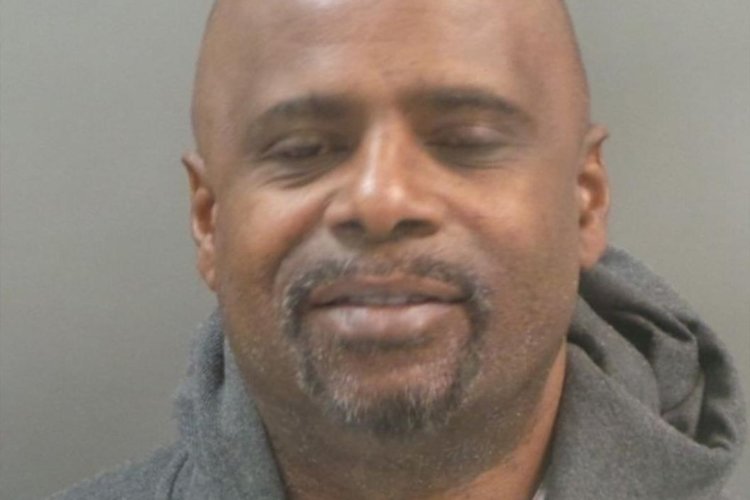

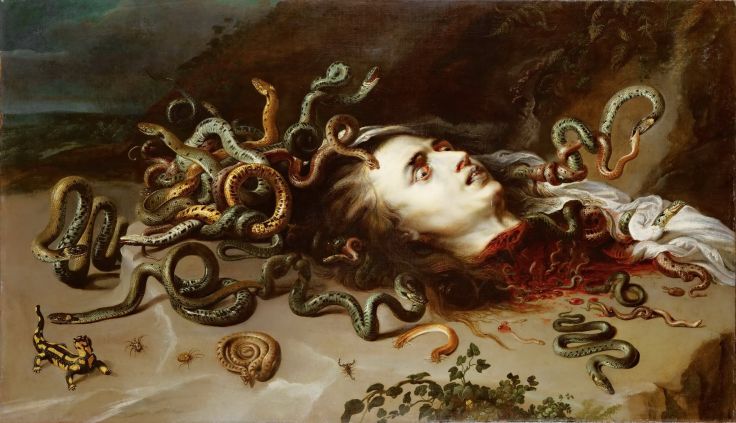

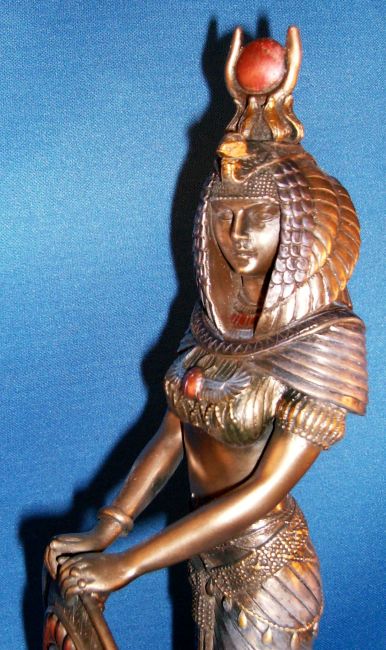
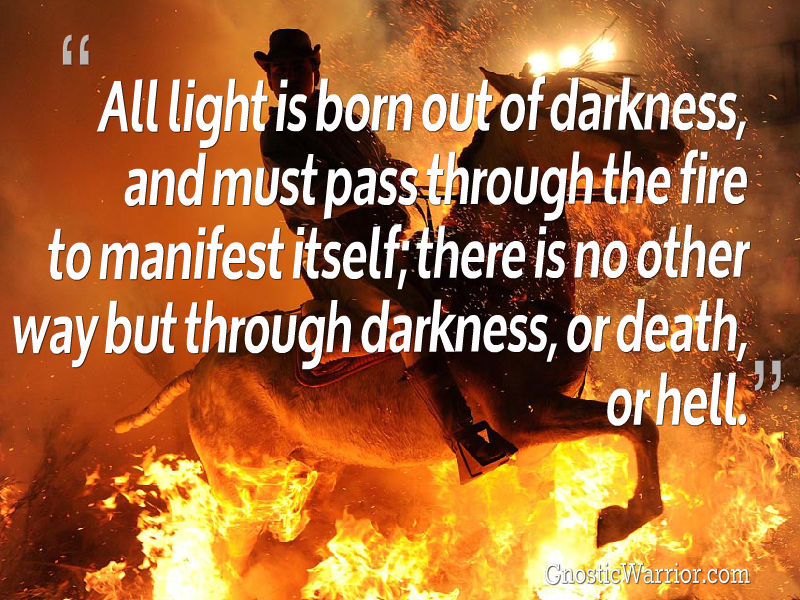
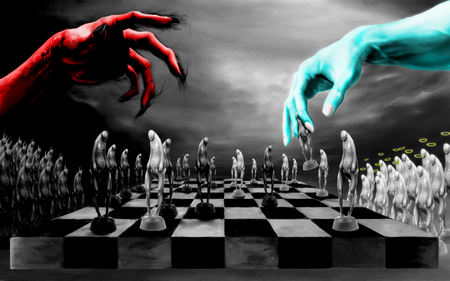
For the sake of fair and full reporting, I believe it should also be clearly stated that the P-2 Lodge’s charter were withdrawn by the Grand Lodge – They could thus no longer function as masons, due to their :
a) unmasonic activities, b) contravening the oath that every Mason takes on initiation not to participate in subversive acts and be loyal to the country you sojourn in (even if you are not a citizen of that country)
c) Contravening the “Ancient Landmarks” the basic and unalterable laws of Masonry throughout the ages, that can not be changed by any man, body of men, Grand lodge or institution, which prohibits such activities